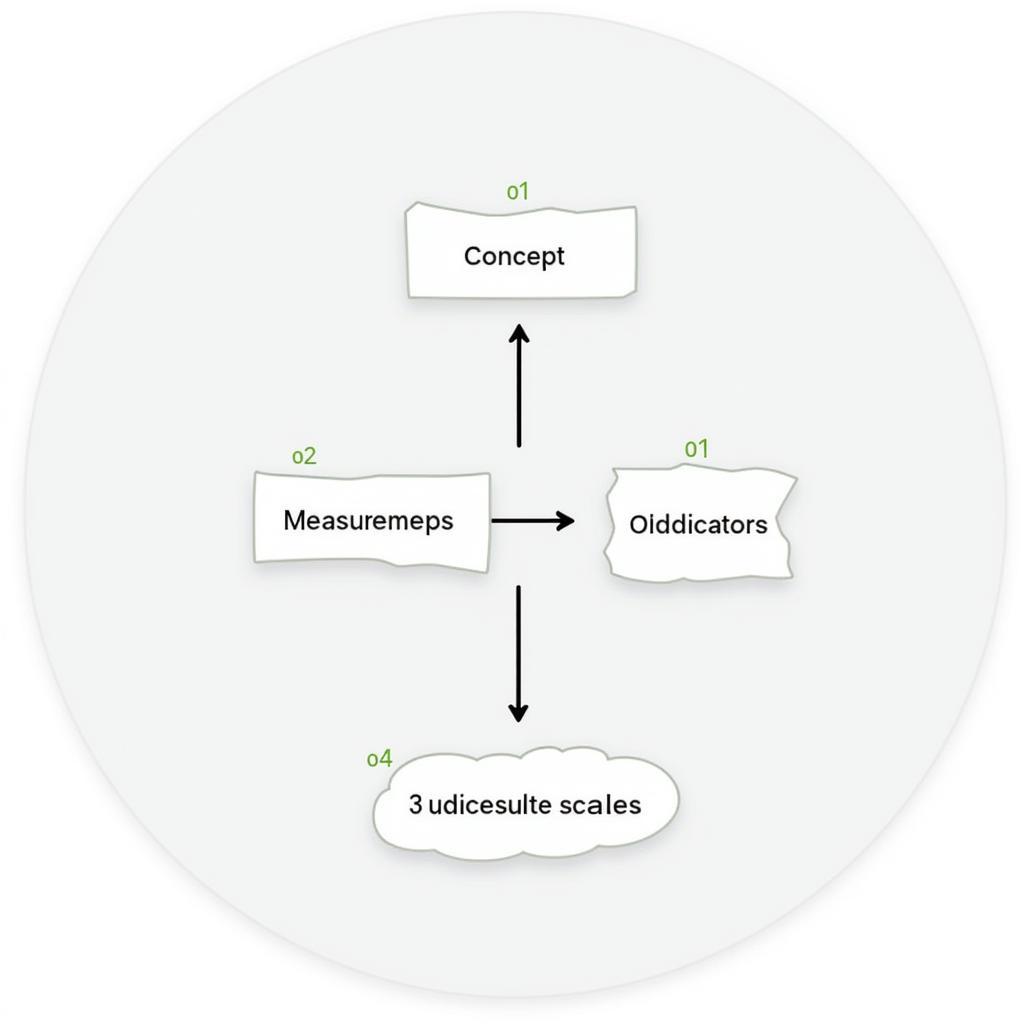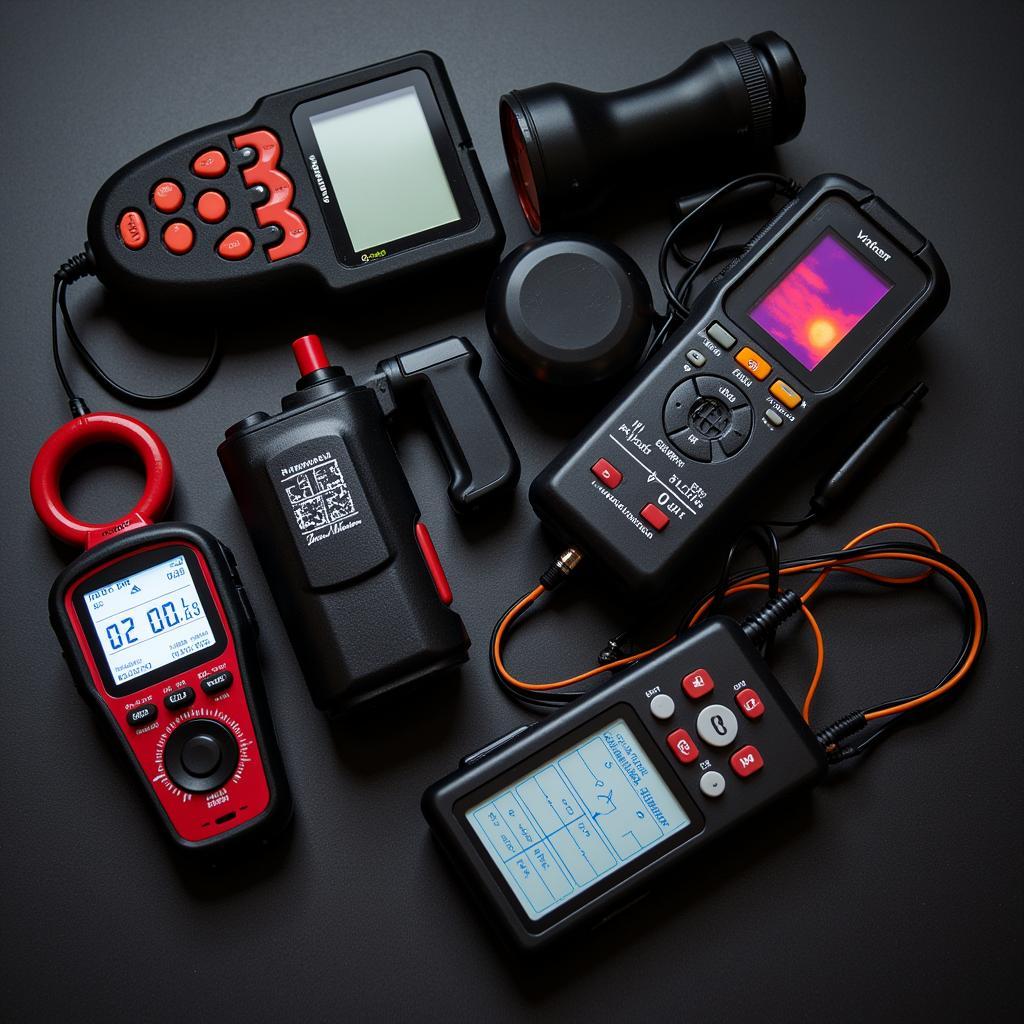Operationalization is a crucial step in the research process, bridging the gap between abstract concepts and measurable observations. It’s the process of defining fuzzy research concepts so they can be measured empirically and consistently. Imagine trying to study something as elusive as “hauntings” without a clear, agreed-upon definition – chaos!
In essence, operationalization takes those big, sometimes spooky, ideas we want to investigate and transforms them into concrete, quantifiable variables. This allows researchers to collect data systematically and draw meaningful conclusions.
How to Operationalize a Variable: A Step-by-Step Guide
Operationalization might sound intimidating, but it’s really about breaking down a complex idea into manageable parts. Here’s a closer look at how it’s done:
-
Define the Concept: Start by clearly defining the abstract concept you’re interested in. For example, if you’re researching the effectiveness of different ghost hunting techniques, your concept might be “paranormal activity.”
-
Identify Observable Indicators: Determine the specific, observable indicators that represent the concept. For “paranormal activity,” indicators could be temperature fluctuations, electromagnetic field (EMF) readings, or unexplained noises.
-
Develop Measurement Procedures: Outline the exact procedures for measuring each indicator. This might involve using specific instruments (like EMF meters or thermometers), observation checklists, or even participant interviews.
-
Establish Measurement Scales: Decide how you will measure and record the data for each indicator. Will you use a numerical scale, a categorical scale, or a combination of both? For instance, temperature fluctuations could be measured in degrees Celsius, while unexplained noises could be categorized by type (e.g., knocking, whispering, footsteps).
 Operationalization Process
Operationalization Process
Why is Operationalization Important in Research?
Operationalization is the backbone of good research, especially when delving into the unknown. Here’s why:
-
Replicability: Clear operational definitions allow other researchers to replicate your study, which is essential for building a solid body of knowledge in any field.
-
Objectivity: By defining concepts in measurable terms, you reduce subjectivity and bias. This is particularly important in paranormal research, where personal interpretations can heavily influence observations.
-
Communication: Operational definitions provide a common language for researchers to communicate their findings clearly and unambiguously.
Examples of Operationalization in Paranormal Research
Let’s look at some examples of how we can apply operationalization to real-life paranormal research:
Concept: Psychic Ability
Indicators:
- Accuracy in ESP (extrasensory perception) tests, such as card guessing or remote viewing.
- Ability to influence random event generators (REGs).
Measurement:
- Number of correct guesses in an ESP test.
- Statistical deviation from chance in REG output.
Concept: Haunted Location
Indicators:
- Reported sightings of apparitions.
- Unexplained physical phenomena (e.g., objects moving, cold spots).
- Electromagnetic field (EMF) anomalies.
Measurement:
- Frequency and consistency of reported sightings.
- Number and type of physical phenomena documented during investigations.
- Strength and location of EMF fluctuations.
 Paranormal Research Equipment
Paranormal Research Equipment
Common Challenges in Operationalizing Paranormal Concepts
Operationalizing paranormal concepts presents unique challenges due to the subjective nature of the phenomena:
-
Lack of Standardized Instruments: Unlike fields like physics or chemistry, paranormal research often lacks widely accepted, standardized measurement tools. This can make it challenging to compare results across studies.
-
Subjectivity of Experience: Many paranormal phenomena are experienced subjectively, making it difficult to establish objective indicators and measurement scales.
-
Ethical Considerations: When researching sensitive topics like hauntings or psychic abilities, it’s crucial to consider ethical implications, such as protecting the privacy and well-being of individuals involved.
Operationalization: Your Key to Unlocking the Mysteries of the Paranormal
Despite the challenges, operationalization is an essential step in moving paranormal research forward. By carefully defining concepts, developing rigorous measurement procedures, and acknowledging the limitations, we can strive for greater objectivity and contribute to a deeper understanding of the unexplained. Remember, the key to unlocking the mysteries of the paranormal lies in our ability to measure what seems immeasurable.
FAQs about Operationalization in Research
1. What’s the difference between a concept and a variable?
A concept is a general idea or notion, while a variable is a measurable representation of that concept. For example, “fear” is a concept, while “heart rate” could be a variable used to measure fear.
2. Can you give an example of operationalizing a concept in everyday life?
Imagine you want to measure “happiness.” You could operationalize this concept by observing indicators like how often someone smiles, how often they engage in activities they enjoy, or by asking them to rate their happiness level on a scale of 1 to 10.
3. How do I know if I’ve operationalized a concept correctly?
A good operational definition is clear, concise, measurable, and relevant to the research question. It should be specific enough to guide data collection and analysis but also broad enough to capture the essence of the concept.
4. What are some common mistakes to avoid when operationalizing variables?
Common mistakes include using vague or ambiguous language, failing to consider all relevant dimensions of the concept, and creating measures that are not reliable or valid.
5. Can the same concept be operationalized in different ways?
Yes, the same concept can be operationalized in different ways depending on the research question, context, and available resources. For example, “intelligence” can be operationalized through IQ tests, academic performance, or even problem-solving abilities.
Need Help with Your Paranormal Research?
Do you have more questions about operationalization or need guidance with your Paranormal Research project? Contact us today! Our team of experienced paranormal investigators is here to help.
Call: 0904826292
Email: research@gmail.com
Visit: No. 31, Alley 142/7, P. Phú Viên, Bồ Đề, Long Biên, Hà Nội, Việt Nam
We offer 24/7 support and are dedicated to helping you explore the unknown with rigor and curiosity.